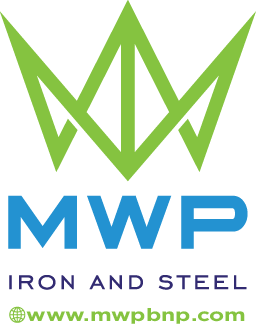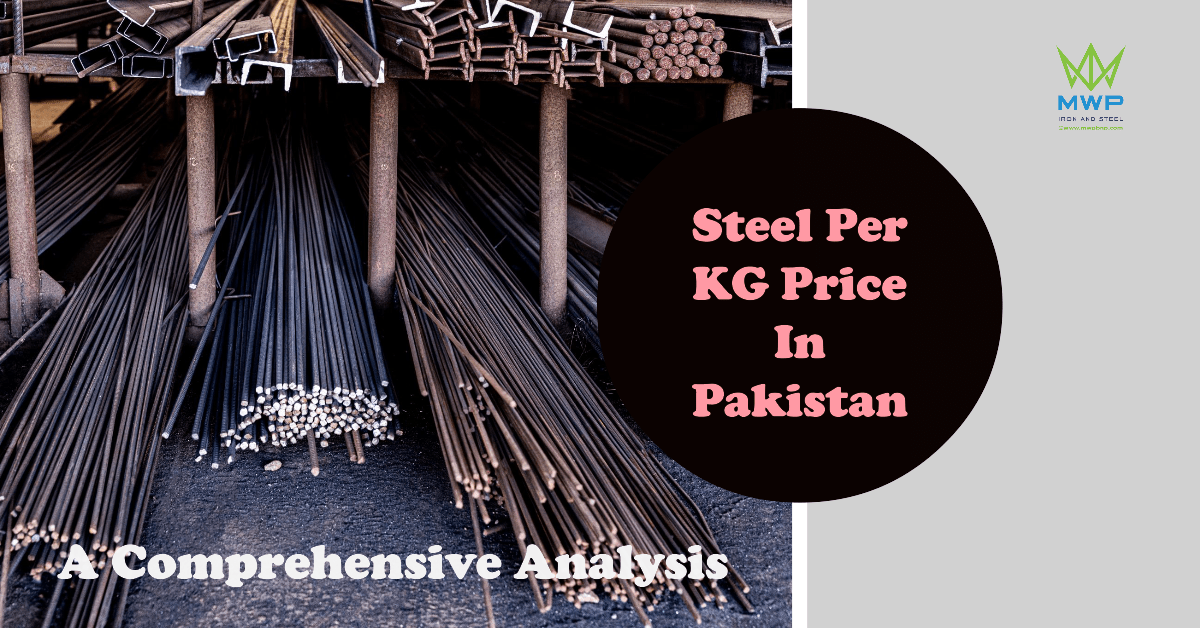Steel Per KG Price In Pakistan:
Steel Per KG Price In Pakistan: Steel is one of the most important materials in the modern world, with a wide range of applications in construction, manufacturing, and other industries. It is a strong, durable, and versatile material that can be used to create a variety of products, from buildings and bridges to vehicles and appliances.
In Pakistan, steel plays a vital role in the economic growth and development of the country. The construction sector, which is a major driver of the economy, So, consumes a significant portion of the steel produced in Pakistan. Steel is also used in a variety of other industries, such as engineering, automotive, and shipbuilding.
Steel Industry in Pakistan
The steel industry in Pakistan is relatively well-developed, with a number of major players operating in the market. Some of the leading steel producers in Pakistan include:
- Pakistan Steel Mills (PSM)
- Aisha Steel Mills
- Amreli Steels
- Mughal Iron & Steel Industries
- Agha Steel Industries
Pakistan produces a wide range of steel products, including:
- Rebar
- Billets
- Sheets
- Coils
- Pipes
- Angles
- Channels
The Pakistani steel market is estimated to be worth around \$10 billion per year.
Purpose and Scope of the Article
The purpose of this article is to analyze the current steel prices in Pakistan and the factors affecting them. We will also discuss the implications of the steel prices for the consumers, the manufacturers, and the economy as a whole.
Steel Per kg Prices in Pakistan: Trends and Analysis
The following table shows the latest steel prices in Pakistan for different types of products and grades, as of November 2023:
| Product | Grade | Price per kg (PKR) | Price per ton (PKR) |
|---|---|---|---|
| Rebar | 40 | 264 | 264,000 |
| Rebar | 60 | 267 | 267,000 |
| Sheet | CR | – | – |
| Coil | HR | – | – |
| Pipe | Seamless | – | – |
The steel prices in Pakistan have fluctuated significantly in recent years. In 2021, the prices reached record highs due to a number of factors, including the strong global demand, the supply disruptions caused by the COVID-19 pandemic, and the rising energy costs. However, the prices have moderated since then and have stabilized at around their current levels.
There are a number of factors that affect the steel prices in Pakistan, including:
- Global scrap prices: Pakistan imports a significant portion of its scrap steel requirements. Therefore, the global scrap prices have a major impact on the domestic steel prices.
- Energy costs: Steel production is an energy-intensive process. Therefore, the fluctuations in the energy costs can also lead to changes in the steel prices.
- Demand and supply: The demand for steel in Pakistan is influenced by a number of factors, such as the growth of the construction sector and the level of investment in infrastructure projects. On the other hand, the supply of steel is affected by the production capacity of the domestic steel mills and the imports.
- Government policies: The government policies, such as tariffs and taxes on imported steel, can also have an impact on the domestic steel prices.
Implications of the Steel Prices
The steel prices have a number of implications for the consumers, the manufacturers, and the economy as a whole.
For consumers, the high steel prices can lead to higher costs for construction projects and other products that use steel. This can have a negative impact on the purchasing power of consumers and the overall economic activity.
For manufacturers, the high steel prices can increase the cost of production, which can lead to lower profits or even losses. This can discourage investment in the manufacturing sector and lead to job losses.
For the economy as a whole, the high steel prices can lead to inflation and slower economic growth.
Steel Per KG Price in Pakistan: Challenges and Opportunities
The steel industry in Pakistan faces a number of challenges, including:
- Competition from imported steel: Pakistan imports a significant portion of its steel requirements. This competition from imported steel can make it difficult for domestic steel mills to compete on price.
- Environmental issues: The steel production process is a major source of pollution. The steel industry in Pakistan needs to adopt green technologies to reduce its environmental impact.
- Quality standards: The quality standards of Pakistani steel products need to be improved to make them more competitive in the global market.
- Infrastructure gaps: The steel industry in Pakistan is hampered by infrastructure gaps, such as inadequate transport and logistics networks. This can make it difficult and expensive to transport steel products to market.
Despite these challenges, the steel industry in Pakistan has a number of opportunities and potential for growth.
Opportunities and Potential
The following are some of the opportunities and potential for the steel industry in Pakistan:
- Increasing demand from the construction sector: The construction sector in Pakistan is expected to grow significantly in the coming years. This will lead to an increased demand for steel products.
- Regional and global markets: Pakistan has the potential to export its steel products to the regional and global markets. Therefore, this would help to boost the country’s export earnings and create jobs.
- Innovation and diversification of products: The steel industry in Pakistan can innovate and diversify its products to meet the changing needs of the market. For example, the industry can develop new products for the automotive and engineering sectors.
Recommendations
The following are some recommendations to overcome the challenges and capitalize on the opportunities in the steel industry in Pakistan:
- Promotion of local steel production: The government can promote local steel production by providing tax breaks and subsidies to the domestic steel mills. This would help to reduce the dependence on imported steel and boost the country’s economy.
- Adoption of green technologies: The steel industry in Pakistan needs to adopt green technologies to reduce its environmental impact. This would help to improve the image of the industry and make it more sustainable.
- Improvement of quality control: The steel industry in Pakistan needs to improve the quality control of its products. This would make Pakistani steel products more competitive in the global market.
- Development of transport and logistics networks: The government needs to develop transport and logistics networks to make it easier and cheaper to transport steel products to market. This would help to reduce the costs for the steel mills and consumers.
By addressing the challenges and capitalizing on the opportunities, So, the steel industry in Pakistan can play a vital role in the country’s economic growth and development.
Conclusion
The steel industry is a vital sector of the Pakistani economy, playing a key role in construction, manufacturing, and other industries. Steel prices in Pakistan are currently relatively stable, but they remain comparatively high when compared to historical levels. This is due to a number of factors, including the global scrap prices, the energy costs, and the demand and supply dynamics.
The steel industry in Pakistan faces a number of challenges, such as the competition from imported steel. The environmental issues, the quality standards, and the infrastructure gaps. However, the industry also has a number of opportunities and potential for growth, such as the increasing demand from the construction sector, the regional and global markets, and the innovation and diversification of products.
The government and the industry stakeholders can play a role in overcoming the challenges and capitalizing on the opportunities in the steel industry. The government can promote local steel production, support the adoption of green technologies, and improve the quality control of steel products. So, the industry stakeholders can invest in new technologies, diversify their products, and improve their operational efficiency.
By working together, the government and the industry stakeholders can help the steel industry in Pakistan to achieve its full potential and contribute to the country’s economic growth and development.
Related Articles: Rate of Iron in Pakistan: A Comprehensive Analysis

